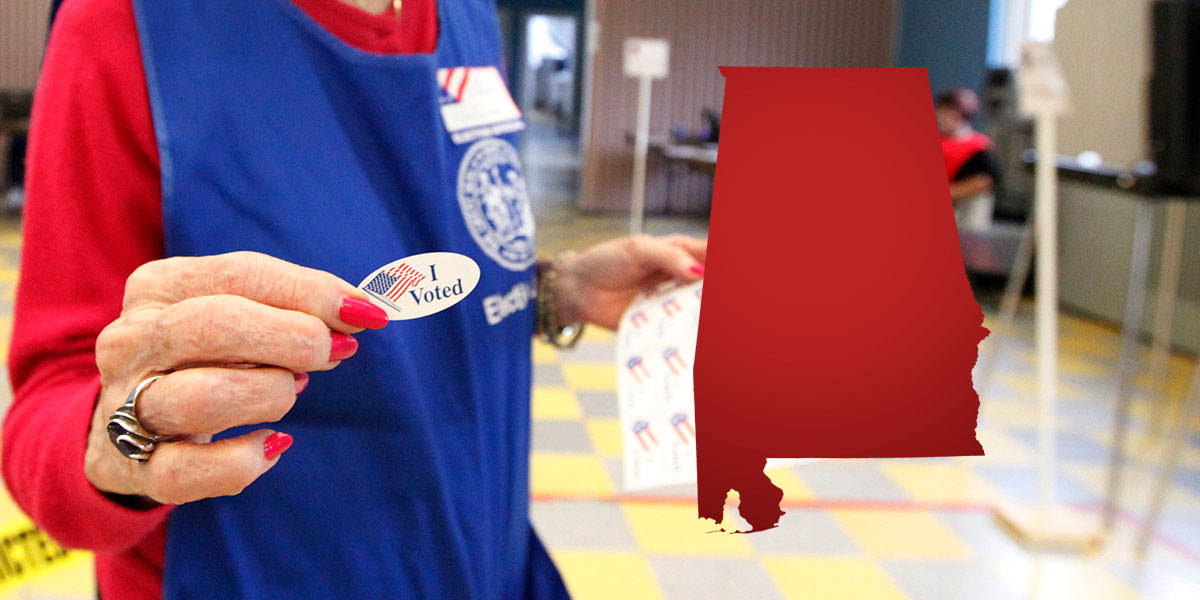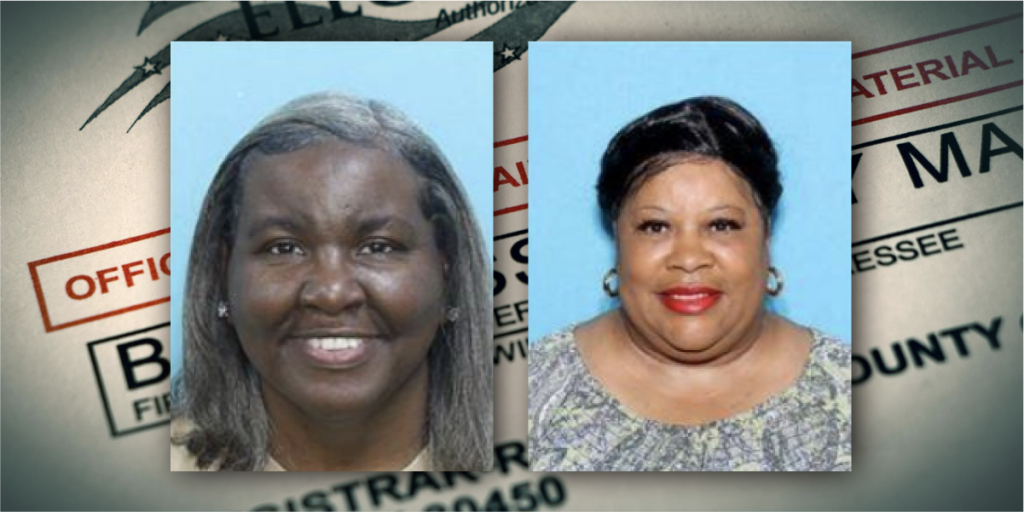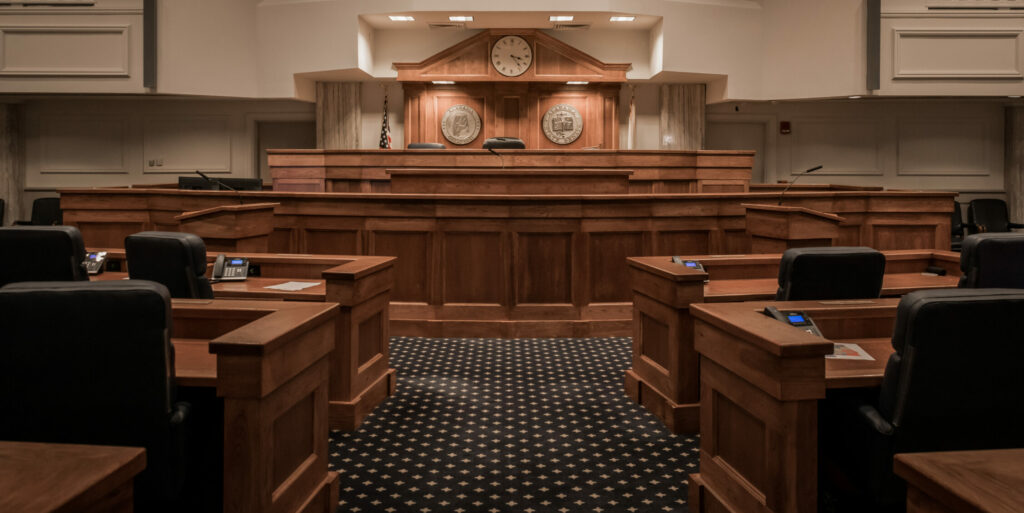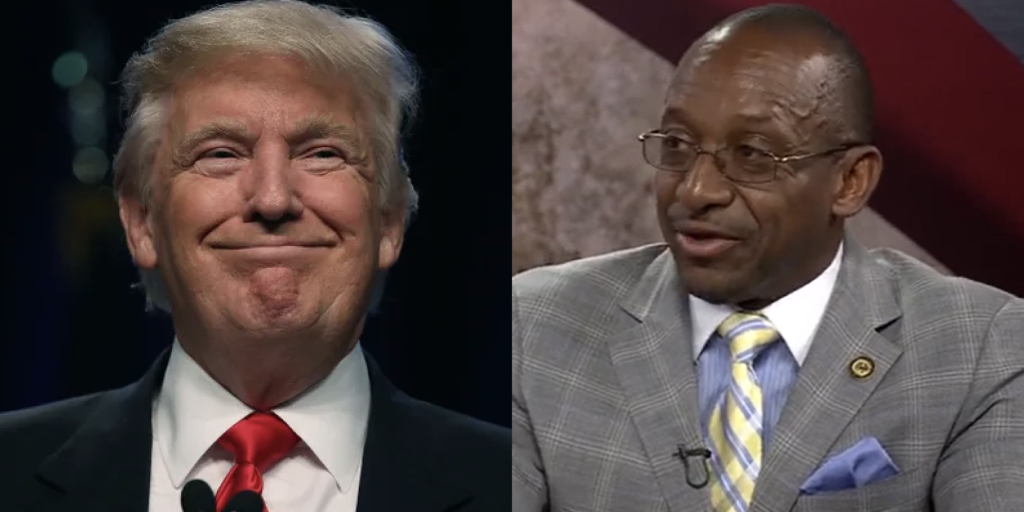On Wednesday, the Alabama Senate Judiciary Committee failed to advance a bill to increase the penalties for crimes against an election official. HB100 is sponsored by State Rep. Adline Clarke (D-Mobile).
“I do have House Bill 100, which proposes to amend Alabama’s Felony Voters Disqualification Act,” Clarke. “It would do two things: One, it would establish increased penalties for a felony crime against an election official that is motivated by an individual’s role as an election official. Two it would establish that a felony against an election official which is motivated by their role as an election official is a crime of moral turpitude. According to the National Congress of State Legislatures, national election officials have faced an unprecedented level of safety and security after the 2020 U.S. presidential election.”
A conviction for a felony crime of moral turpitude generally means a lifetime loss of both voting and gun rights.
“I have no problem with the moral turpitude addition and maybe not issues with the others — but what I don’t know is, if a person goes in and they go and put a finger on the middle of a person’s chest and say you ought to do such and such, are they going to jail for 15 years?” State Sen. Sam Givhan (R-Huntsville) said. “Where is the sliding scale on that? Somebody gets frustrated and says some nasty things. Is that going to be a felony? Is that going to be a misdemeanor?”
“It is up to a judge to make that decision,” Rep. Clarke said.
“That is pretty scary,” Givhan responded.
“[Sen.] Gerald Allen and I did the same thing for referees,” Sen. Rodger Smitherman (D-Birmingham) said. “The same thing. If you come out of them stands now and do what you just said and put a finger on a referee you are going to get charged and you can get jail time. If we do it for referees we ought to do it for ourselves and that has been in law for more than ten years.”
The Judiciary Committee is chaired by Sen. Will Barfoot (R-Pike Road).
“As I understand the bill, and in my reading of it, it doesn’t create a new offense,” said Chairman Barfoot. “For instance, if the elements of harassment are met by, as they very well could be, by me putting my finger in your face or physical contact meant to harass, annoy, or alarm would be harassment which is already a misdemeanor. I think this proposes that a minimum sentence of that if it’s an elected official. That’s my reading of it. I think this doesn’t create a new crime, but it does just say that if it is a crime and if it is an election official here is the minimum sentence for that. Senator Smitherman I would have thought that you would be against minimum sentences.”
Sen. Smitherman seemed to think this bill dealt with elected officials.
Sen. Vivian Figures (D-Mobile) said, “But this is not us. As I understand this, this is for election officials not elected officials. These are people at the polls. I think it is a great bill to use as a deterrent, because it is hard enough to get people to work at the polls now and if they have to have a fear. All they have to have is that fear that somebody is coming after them; and they shouldn’t have to work under those circumstances.”
RELATED: Ivey signs bill banning ballot harvesting
“I see people get frustrated and I get frustrated with my cell phone, my iPad, and my computer pretty regular, and I want to throw them through the window,” said Sen. Lance Bell (R-Pell City). “The new technology when we go to vote is at times aggravating when it doesn’t work or there is a problem. There is times I get frustrated when I know I am there. And sometimes you can see your name and the person doing it. What can you say? And you want to reach over and touch the I-pad for them. How do they interpret that? I know the law is already there but are we making that a felony if I am trying to correct. That is what worries me about it.”
Senate Minority Leader Bobby Singleton (D-Greensboro) said that he has been arrested for a dispute with a poll worker before.
“Back in 1996 I got arrested at a poll for interfering with a public official for performing his duty,” said Leader Singleton.
“It was as simple as this. It was almost time to close the polls. This official decided, when they saw a wave of people coming, he was just going to lock them out. When he tried to close the door, I grabbed the door and pulled the door open. I got arrested for interfering with an elected official performing their duty. There was a question in court whether the poll was closed and whether or not they did their duty or if I as a citizen had a right to make sure that these people got their right to vote. The charges were dropped against me because it was proven, we were voting until 6:00 o’clock then, it wasn’t 6 o’clock. I could have been charged with a class A misdemeanor. Which would have given me up a year in jail and a thousand dollar fine. With this law it could be enhanced to moral turpitude which would have wiped me out for being able to vote for the rest of my life.”
Clarke said, “This only covers felonies.”
“Over the last 30 years how years I see how we have dealt with moral turpitude; I am kind of thinking do we need to make this part of this,” said Figures. “I see increased penalties, maybe increased time or fines; but unless this goes beyond this and that is covered anyway in terms of murder or whatever. Those are just my thoughts before it goes to the floor.”
“If there is somebody who is trying to deny someone the right to vote, they don’t deserve the right to vote,” replied Clarke. “It would depend upon each situation and then you would have to prove intent.”
“We need to have something that is going to give people notice if you do this,” said Smitherman. “I want you to think about, as we go forward, some kind of notice. I don’t know where or how. I don’t have the answer. The simplest thing would be a little sign like we have on the back door saying that this is a non-smoking premises.”
Figures made the motion to give the bill a favorable report and Smitherman seconded it.
There were four votes in favor, four against and three members not voting. The bill failed to get a favorable report.
“This bill failed to get a favorable report. We will carry this bill over and put it back on the agenda potentially to give members an opportunity to take a look at it.
HB100 passed the House 95 to 0, but will not get to the floor of the Senate unless the Senate Judiciary Committee votes to give the bill a favorable report next week – likely the last meeting of the Senate Judiciary Committee this legislative session.
To connect with the author of this story, or to comment, email [email protected]













